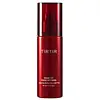What's inside
What's inside
 Key Ingredients
Key Ingredients

No key ingredients
 Benefits
Benefits

 Concerns
Concerns

 Ingredients Side-by-side
Ingredients Side-by-side

Water
Skin ConditioningAlcohol Denat.
AntimicrobialPentylene Glycol
Skin ConditioningButylene Glycol
HumectantCentella Asiatica Extract
Cleansing1,2-Hexanediol
Skin ConditioningPEG-60 Hydrogenated Castor Oil
EmulsifyingPolyglyceryl-2 Oleate
EmulsifyingPolyacrylic Acid
Emulsion StabilisingOctyldodeceth-16
EmulsifyingSodium Citrate
BufferingCitric Acid
BufferingSodium Polyacrylate
AbsorbentPvp
Emulsion StabilisingTriethyl Citrate
MaskingWater
Skin ConditioningPolyester-5
Alcohol Denat.
AntimicrobialGlycine Soja Seed Extract
Skin ConditioningMalus Domestica Fruit Extract
AntioxidantMelaleuca Alternifolia Leaf Extract
PerfumingHamamelis Virginiana Water
AstringentPvp
Emulsion StabilisingButylene Glycol
HumectantPolyglyceryl-2 Oleate
EmulsifyingPEG-60 Hydrogenated Castor Oil
EmulsifyingOctyldodeceth-16
EmulsifyingEthylhexylglycerin
Skin ConditioningGlycerin
HumectantPentylene Glycol
Skin Conditioning1,2-Hexanediol
Skin ConditioningOctanediol
Methylpropanediol
SolventGlyceryl Caprylate
EmollientPhenoxyethanol
PreservativeLimonene
PerfumingParfum
MaskingHexyl Cinnamal
PerfumingLinalool
PerfumingGeraniol
PerfumingWater, Polyester-5, Alcohol Denat., Glycine Soja Seed Extract, Malus Domestica Fruit Extract, Melaleuca Alternifolia Leaf Extract, Hamamelis Virginiana Water, Pvp, Butylene Glycol, Polyglyceryl-2 Oleate, PEG-60 Hydrogenated Castor Oil, Octyldodeceth-16, Ethylhexylglycerin, Glycerin, Pentylene Glycol, 1,2-Hexanediol, Octanediol, Methylpropanediol, Glyceryl Caprylate, Phenoxyethanol, Limonene, Parfum, Hexyl Cinnamal, Linalool, Geraniol
Ingredients Explained
These ingredients are found in both products.
Ingredients higher up in an ingredient list are typically present in a larger amount.
1,2-Hexanediol is a synthetic liquid and another multi-functional powerhouse.
It is a:
- Humectant, drawing moisture into the skin
- Emollient, helping to soften skin
- Solvent, dispersing and stabilizing formulas
- Preservative booster, enhancing the antimicrobial activity of other preservatives
Alcohol Denat. is an alcohol with a denaturant property. It is created by mixing ethanol with other additives.
This ingredient gets a bad rep because it is irritating and drying - mostly due to its astringent property. Astringents draw out natural oils in tissue, constricting pores and leaving your skin dried out.
However, alcohol denat. is not all that bad.
Due to its low molecular weight, alcohol denat. tends to evaporate quickly. One study on pig skin found half of applied alcohol evaporated in 10 seconds and less than 3% stayed on skin.
This also helps other ingredients become better absorbed upon application.
Studies are conflicted about whether this ingredient causes skin dehydration. One study from 2005 found adding emollients to propanol-based sanitizer decreased skin dryness and irritation. Another study found irritation only occurs if your skin is already damaged.
Small amounts of alcohol are generally tolerated by oily skin or people who live in humid environments.
The rule of thumb is if this alcohol is near the end of an ingredients list, it will probably not affect your skin much.
Also...
This ingredient has antimicrobial and solvent properties.
The antimicrobial property helps preserve products and increase their shelf life. As a solvent, it helps dissolve other ingredients.
Other types of astringent alcohols include:
Learn more about Alcohol Denat.Butylene Glycol (or BG) is used within cosmetic products for a few different reasons:
Overall, Butylene Glycol is a safe and well-rounded ingredient that works well with other ingredients.
Though this ingredient works well with most skin types, some people with sensitive skin may experience a reaction such as allergic rashes, closed comedones, or itchiness.
Learn more about Butylene GlycolOctyldodeceth-16 comes from the fatty-alcohol Octyldodecanol.
Emulsifers keep oils and water ingredients together to create a more even consistency.
Peg-60 Hydrogenated Castor Oil comes from hydrogenated castor oil. It is a solubilizer and emulsifier.
As a solubilizer, it helps dissolve ingredients into a water-based version. It is also an emulsifer. Emulsifier help prevent oils and water from separating. Both these properties help create evenly-spread and uniform products.
Basically, Peg-60 Hydrogenated Castor Oil helps hold ingredients together.
Learn more about PEG-60 Hydrogenated Castor OilPentylene glycol is typically used within a product to thicken it. It also adds a smooth, soft, and moisturizing feel to the product. It is naturally found in plants such as sugar beets.
The hydrophilic trait of Pentylene Glycol makes it a humectant. As a humectant, Pentylene Glycol helps draw moisture from the air to your skin. This can help keep your skin hydrated.
This property also makes Pentylene Glycol a great texture enhancer. It can also help thicken or stabilize a product.
Pentylene Glycol also acts as a mild preservative and helps to keep a product microbe-free.
Some people may experience mild eye and skin irritation from Pentylene Glycol. We always recommend speaking with a professional about using this ingredient in your routine.
Pentylene Glycol has a low molecular weight and is part of the 1,2-glycol family.
Learn more about Pentylene GlycolPolyglyceryl-2 Oleate isn't fungal acne safe.
Pvp is a water-soluble synthetic polymer and common hairstyling ingredient. It is a film-forming ingredient and used to "hold" specific shapes of hair.
Pvp is less effective in high-humidity. It tends to draw moisture, but this moisture dismantles the structure and "hold".
Water. It's the most common cosmetic ingredient of all. You'll usually see it at the top of ingredient lists, meaning that it makes up the largest part of the product.
So why is it so popular? Water most often acts as a solvent - this means that it helps dissolve other ingredients into the formulation.
You'll also recognize water as that liquid we all need to stay alive. If you see this, drink a glass of water. Stay hydrated!
Learn more about Water